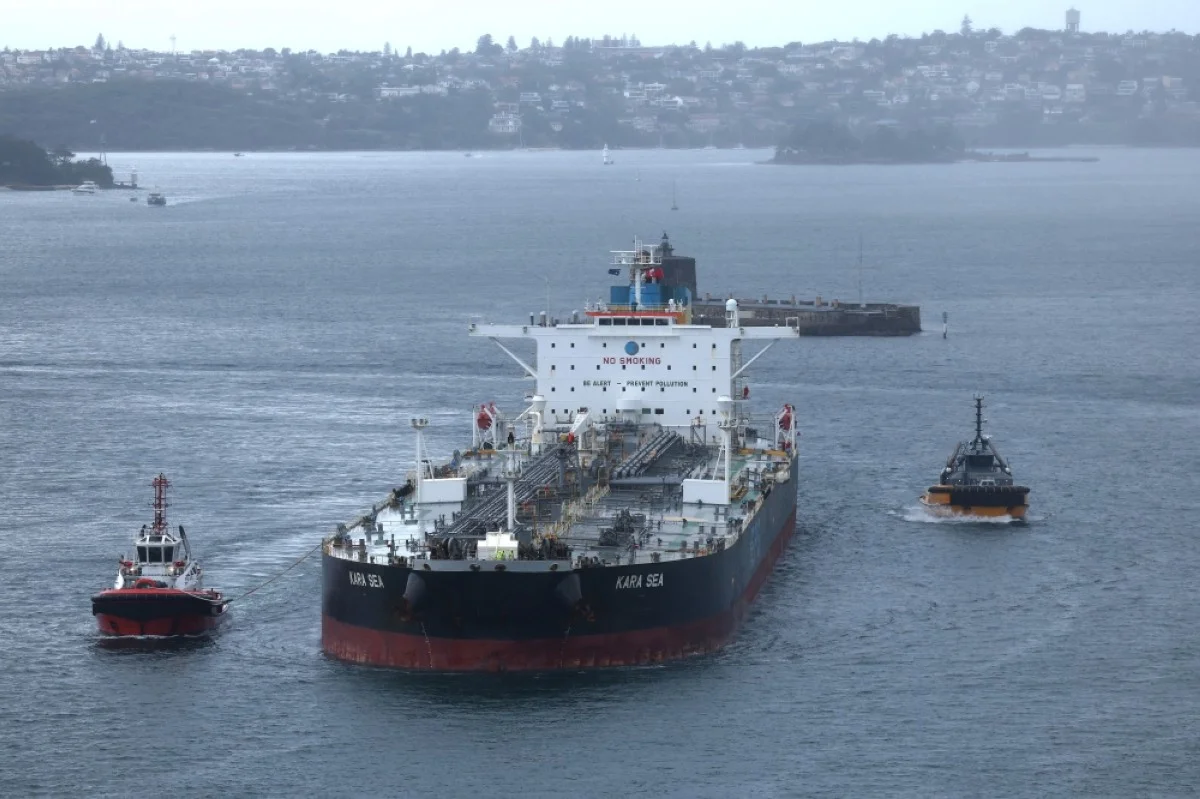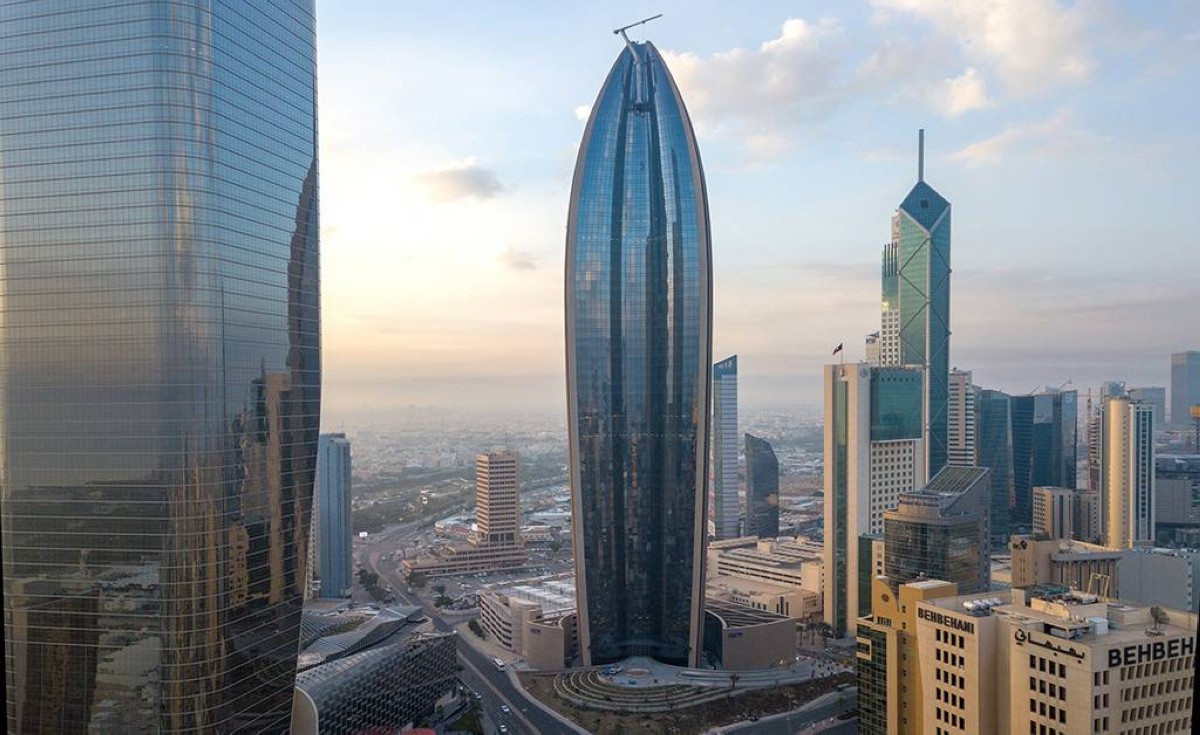Why oil prices are muted despite Iranian attacks?
LONDON: Oil prices have failed to soar even after major crude producer Iran attacked Zionist entity with drones and missiles, risking wider conflict in the crude-rich Middle East.

SYDNEY: Tugboats escort a crude oil tanker, Kara Sea, through Sydney Harbor.- AFP.
On Tuesday, the world’s main oil contracts were trading slightly higher. European benchmark, Brent North Sea crude, gained 0.1 percent to $90.17 per barrel. WTI, the main US traded oil contract, won 0.3 percent to $85.66 per barrel. They fell on Monday following the weekend attack.
Retaliation?
Fallout from Iran’s actions were to an extent priced in by markets as warnings had been given prior to the attack, although the scale of retaliation remains unclear. “The attack, announced well in advance, resulted in minimal damage as Zionists and allied forces intercepted nearly all projectiles,” noted Ole Hvalbye, analyst at SEB bank.
From late on Saturday to early Sunday, Iran launched more than 300 drones, missiles and ballistic missiles at Zionist entity but caused just minor damage, including at a military base in the country’s south. “The market discounts a possible escalation of the crisis between Iran and Zionists,” said Tamas Varga, analyst at PVM Energy. “It believes that any Zionists retaliation will be measured, partly due to US and international pressure to show restraint.
“Iran will also be careful not to exacerbate the situation as it will want to continue its crude oil exports,” Varga told AFP. US Treasury Secretary Janet Yellen has warned there could be further sanctions targeting Iran. It already faces crippling US sanctions since Washington’s unilateral withdrawal in 2018 from a landmark deal that had promised sanctions relief in return for curbs on Iran’s nuclear program. The sanctions sharply reduced Iran’s oil revenues and further restricted trade, helping to harden the decades-old enmity with the United States and Zionist entity.
Supply disruption?
Iran still produces close to 3.2 million oil barrels per day, according to the International Energy Agency, which last year put the country as the world’s ninth largest crude producer. “Zionist entity may exert pressure on its ally, the US, to impose stricter sanctions on Iran,” said Hvalbye. “The enforcement of such sanctions, particularly on Iranian oil exports, could result in a loss of anywhere between 0.5 million to 1.0 million barrels per day of oil supply.”
That should still leave Iran’s daily output above the roughly 1.9 million barrels of oil seen in mid-2020 - after then-US president Donald Trump pulled out of the nuclear agreement. Varga forecast that spare oil capacity within the OPEC cartel “should be sufficient to mitigate the impact of any supply disruption” caused by Iran. He said this would be the case as long as major oil producer Saudi Arabia was not drawn into the conflict, or that the Strait of Hormuz - a key sea passage for transporting crude - remained open. “For now, the market believes that further serious conflagration is avoidable,” Varga added. — AFP.











